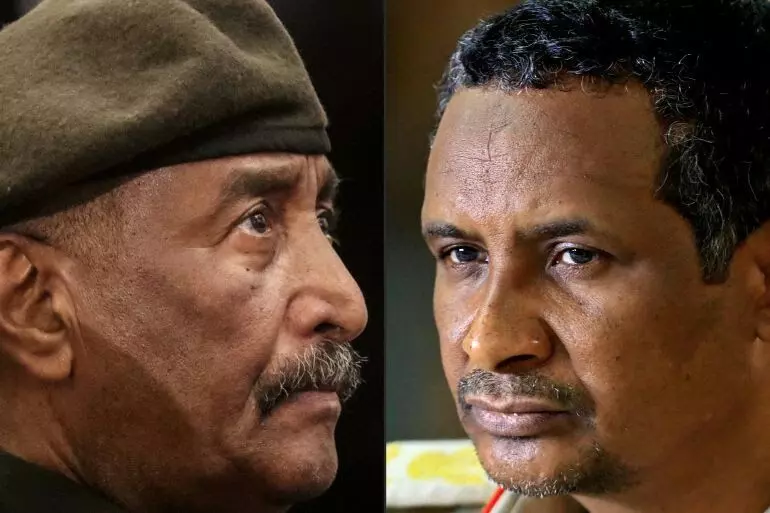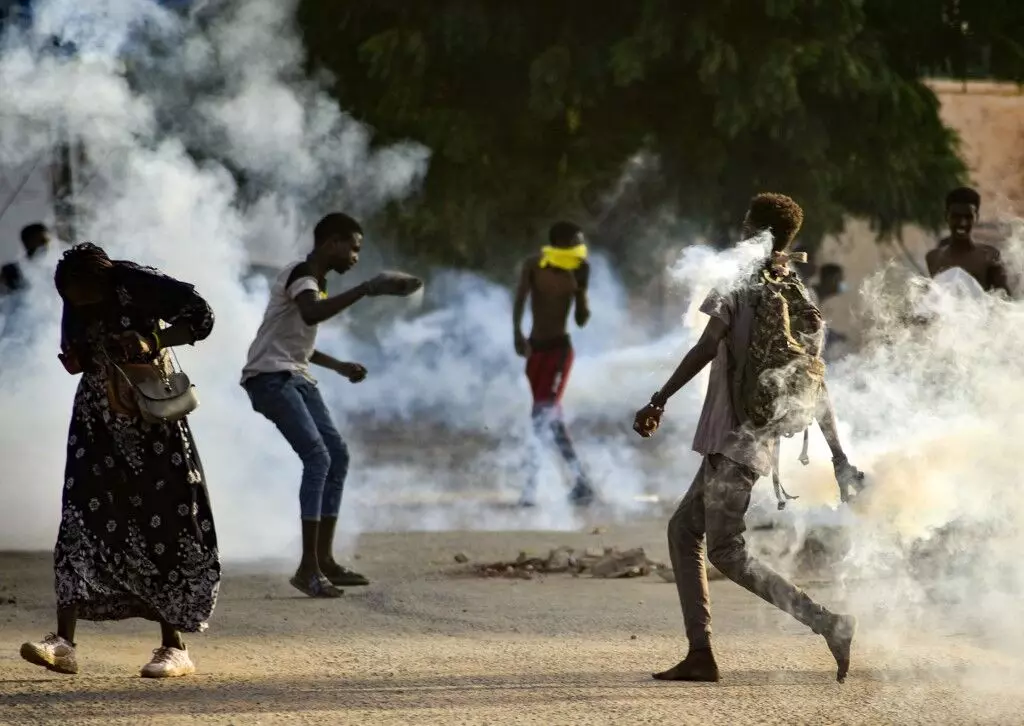
Opposing generals calling the shots in Sudan
text_fieldsThe civil conflict in the African country of Sudan has been intensifying for the past few days. There have been at least 300 deaths from armed conflict as at the of writing this. The civil war broke out as a result of the conflict between the Sudanese Armed Forces under General Abdel Fattah al-Burhan and the Rapid Support Forces (RSF) under General Mohamed Hamdan Dagalo. The rivalry between these generals and the struggle for administrative control lie at the core for the conflict. However, the issue has been in the making upto this point for at least four years to which both generals contributed in different ways. The military rule of General Omar al-Bashir, who overthrew the Sudanese government in 1989 and captued power, lasted three decades up until 2019. Holding different titles as ruler in different times, Bashir maintained his military leadership of the nation, who also served as president in a civilian capacity. Bashir was able to rule with an iron grip for thirty years because he gave the populace a functioning government along with welfare and development initiatives. However, an unaccountable administration can easily become corrupt by authoritarian tendencies and things started going wrong. The Bashir regime was no different in that regard. Thus, along with the anti-regime sentiment that gradually arose among the people, the generals seized the opportunity and took to the street and soon i was a matter of time for the Bashir era to come to to an end in 2019. In came Abdel Fattah Al-Burhan with his rule.
But even after Bashir left office, the Janjaweed militia that he had already nurtured in the Darfur region to fight against the rebels remained in its new avatar, the RSF, a paramilitary force. They have now armed themselves and taken to the streets of Khartoum, the nation's capital, and other large cities, demanding a piece of the pie of power. People are venture out or gather food and water because of the conflict. Foreign aid cannot easily arrive because the Khartoum airport is heavily damaged and closed most of the time. Since it is no longer safe to even stay inside, people are fleeing the country picking up whatever they can carry. There are signs that the RSF is helpless to defend against the aerial capability of the official army from wreaking havoc with bombs and shells. Though they have anti-aircraft defences, they lack counter attack capability. As a resultt, more people are dying. There have been attempts to resolve the conflict. Organizations like the UN and EU have called for a ceasefire but have not been successful. The Saudis had been looking to sway the Janjaweed group, whom the Saudis had enlisted in their assistance in fighting the Houthi offensive in Yemen. Although there is hope that the UAE and Egypt can exercise some leverage, they are handicapped because they not seen as neutral parties. Egypt too is in collaboration with the military government. As a result, neither side is willing to heed the appeal for peace. The African Union is the most likely mediator. But Abdel Fattah al-Burhan himself says that now is not the time for the member states to land in Khartoum airport.
Russia and China, two major powers, have also urged caution on both sides. It is in Russia's interest to avoid conflict in strategic areas. China also had high stakes in the country having nvested heavily in Sudan's oil industry and gold mines. It is generally accepted that the problem can be resolved only through mediation by such third parties. Even the cease-fire on Wednesday to provide essential supplies failed. A UN-sponsored cease-fire on Sunday for rescue missions and emergency aid also failed halfway through. A number of suggestions for a deal between the RSF and Burhan's government army are on the table, mostly revolving around a merger between the two to share power, but as solutions get close, differences in timelines turn deal-breakers. The Dagalo Army is demanding a ten-year contract term instead of a two-year one. The major powers themselves fear that the situation will get out of hand if the problem is not resolved soon or at least a ceasefire is declared. Both the Sudanese army and the opposition rely on foreign arms. America is not merely a bystander either. Secretary of State Antony Blinken advised both parties to exercise restraint and that was how a semblance of cease-fire was formally accepted by both parties. However, the support of regional nations like Egypt, Saudi Arabia, and the UAE will also be required if the United States wishes to intervene. The impact of Sudan's civil unrest will not be limited to within that country. Since its ramifications will spread further, only under intense international pressure can there be a de-escalation in the current situation. If not, the world's crisis — which is already exacerbated by the war in Ukraine—will undoubtedly get compounded by the conflict in Sudan.

























